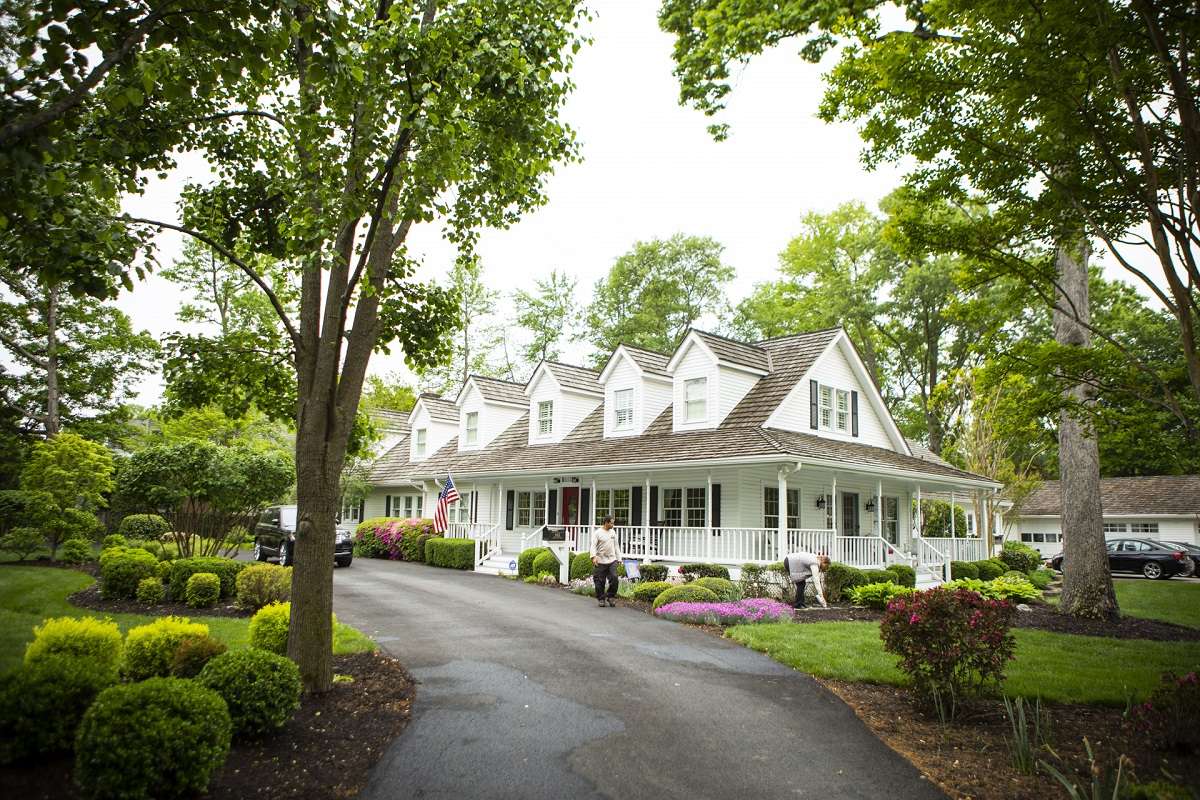

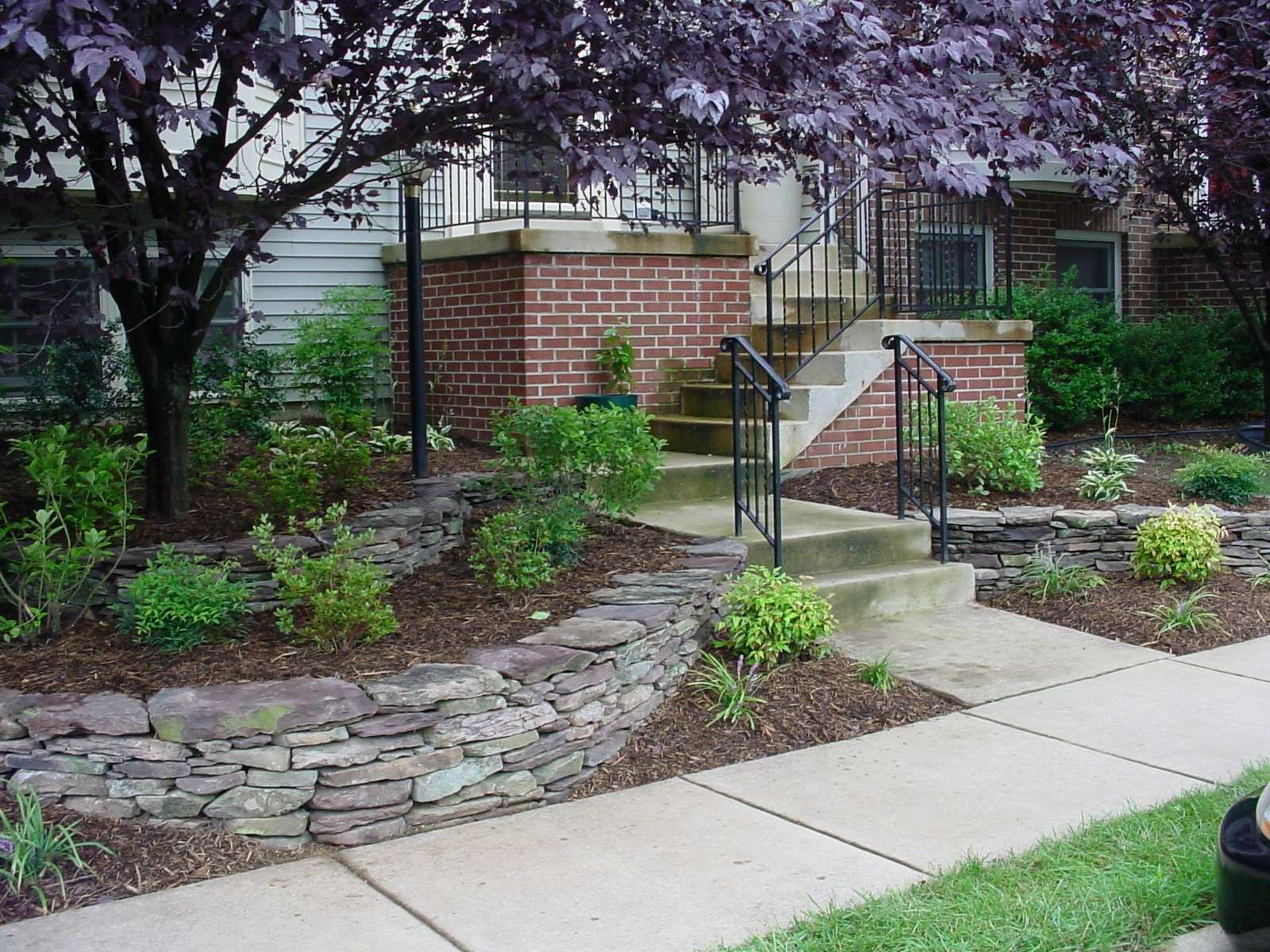
If you’re trying to choose the right material for your landscape, you may be weighing the pros and cons of mulch, stone, or ground cover. All three can be great options, but the best choice depends on your property's needs — especially in places like Alexandria, Arlington, and Springfield, VA.
In this article, we’ll break down how each material performs and help you make the right choice for your landscaping goals.
If you’re thinking about material for a plant bed in which you want to have a variety of plants, then mulch is going to be your best bet. Mulch is the optimal choice for plant material for a few reasons.
Mulch is beneficial to plants because it helps to retain moisture during periods of drought. It will not only keep the soil moist beneath the surface but it will also insulate the plants’ delicate roots from the heat. During the colder months, mulch will insulate plants’ roots from the extreme cold and the wind.
Mulch also has the added benefit of inhibiting weed growth in your plant beds. While it won’t prevent weeds entirely, it will help to suppress them by blocking the sunlight.
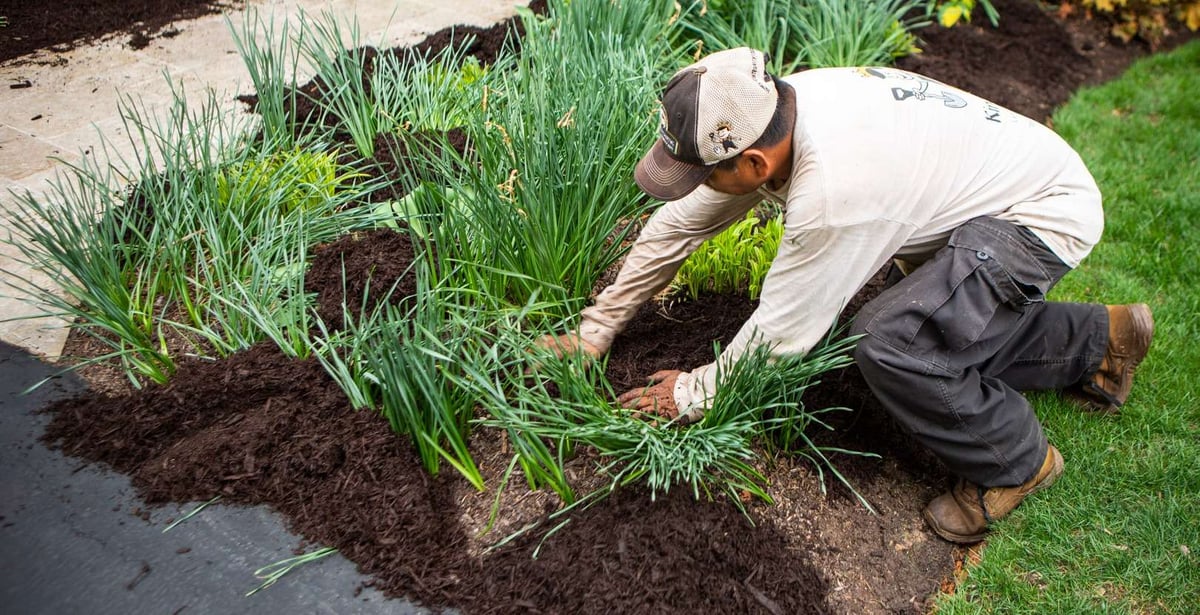
And, over time, mulch will naturally decompose and add nutrients back into your soil which benefits your plants.
You aren’t going to get these same plant benefits from stone (or what we also refer to as “decorative gravel” in a lot of cases).
While there are definitely some plants that can perform fine in stone, it does tend to heat up the soil a bit so you might need some more heat- and drought-tolerant plant material (like ornamental grasses). It isn’t as good at suppressing weeds and it also won’t break down and add nutrients like mulch. But it doesn’t need to be replaced like mulch does so it’s a low maintenance choice.
While mulch has lots of benefits to plant material, it is not a viable solution when it comes to erosion prevention. If you have a little bit of a slope where your plant beds are (or where you’re choosing a ground cover material), mulch can easily be washed away by even a little bit of rain.
If there’s an area where the gutters empty out, you might also find that mulch can get messy and continually be washed out.
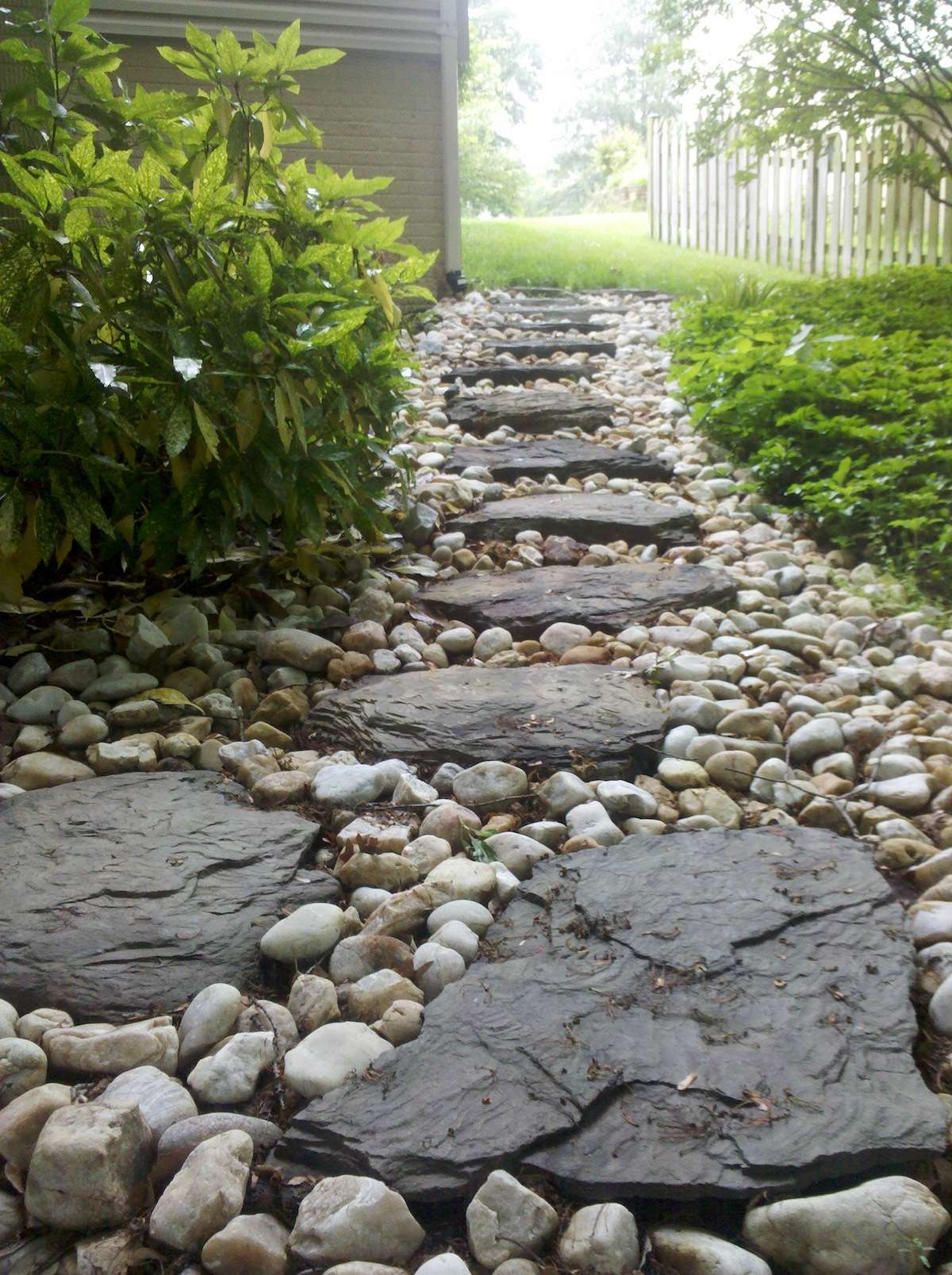
But gravel or stone is going to be better at standing up to that water (particularly if you choose a larger rock size). For this reason, we do sometimes get requests to do decorative stone around the foundation of a home. As far as the aesthetic factor, t can look nice by itself, especially if you choose a river rock with some various colors to it.
And as we mentioned above, another benefit to stone is the fact that it is low (or no) maintenance. You don’t have to have it refreshed or replaced like mulch.
If you have a larger slope on your property, more like an embankment, then groundcover might be a superior choice over both rock or mulch. Groundcover tends to have a stable root system and can spread on a hill where you might not be able to have grass because it’s too difficult to grow.
We also sometimes get requests for groundcover for large open areas where there is space to fill.
Of course, certain species of groundcover can be invasive and spread more than you want them to. It’s important to know what you’re getting and to work with a landscaper who has a good horticultural understanding of “what works where.”
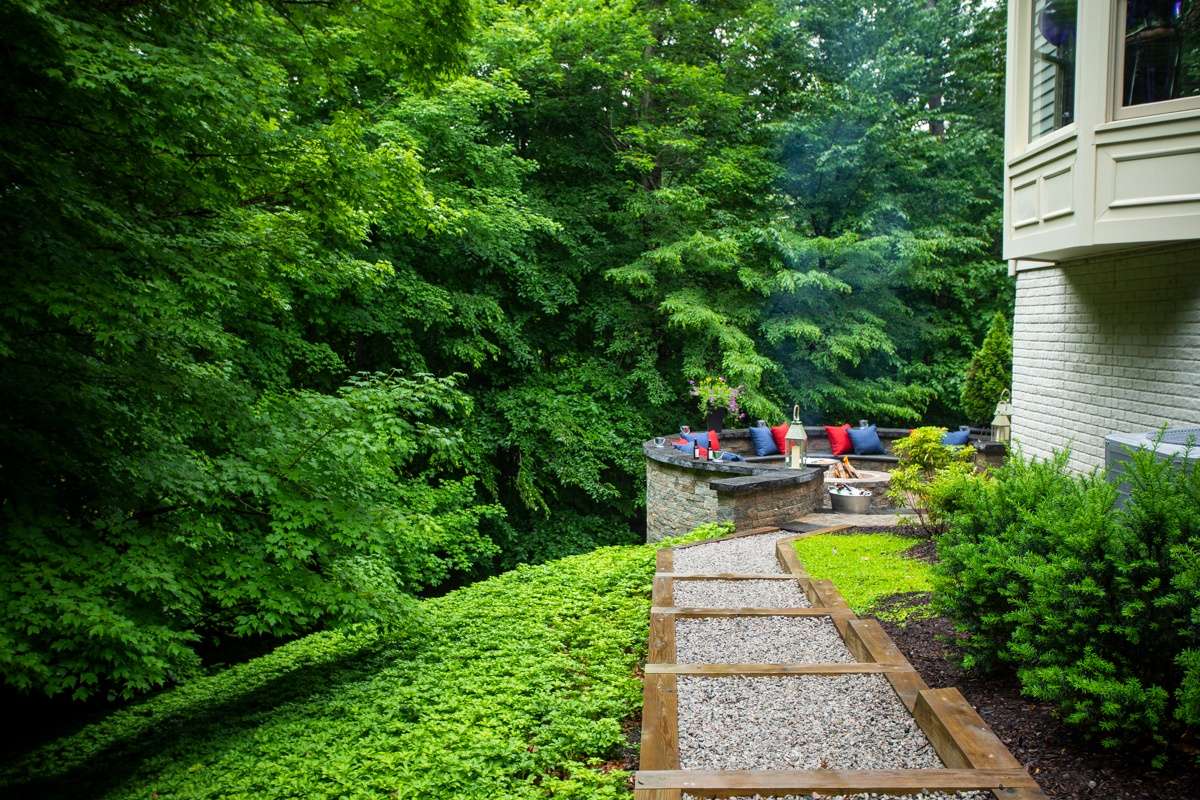
If you have a plant bed with some open spots and decide you’re going to use groundcover just for those openings, you might be disappointed when it grows to take over the whole plant bed.
Again, it’s just a matter of knowing what you’re getting and how it will fill in the space that you have.
Not sure which option is right for your landscape? Here’s a quick comparison to help you decide.
What’s better for plant beds in Northern VA — mulch or stone?
Mulch is generally a better choice for plant beds in this region. It helps retain moisture, protects roots from extreme temperatures, and breaks down to improve your soil. Stone can work in limited areas, but it doesn’t provide the same plant benefits.
Can I use ground cover instead of mulch on a slope?
Yes, ground cover is often the best option for slopes where mulch or stone might wash away. It stabilizes the soil, prevents erosion, and creates a natural look once it fills in. Just make sure to choose a variety that won’t become invasive.
Is stone landscaping truly low-maintenance?
Decorative stone requires far less upkeep than mulch. However, weeds can still grow between rocks, and leaves or debris may need to be cleared occasionally. For many homeowners in Arlington and Springfield, it’s a great long-term, low-maintenance solution.
Will mulch wash away in heavy rain?
It can — especially if installed on a slope or near downspouts. That’s why it’s important to use mulch in level plant beds or to install edging to help contain it. In erosion-prone areas, stone is often the better option.
When it comes to mulch vs. stone vs. ground cover, you ultimately just want to have confidence that you’ve made the best choice for your landscape. These features can certainly be excellent additions to your property and overall landscaping project, assuming that you choose the best location for them based on your needs.
Keep in mind that many landscapes end up using a combination of these different materials. While stone is better than mulch for areas of erosion, mulch is better than stone for areas with level plant beds. Many properties have a variety of types of areas warranting different solutions.
We commend you for putting some time into researching mulch vs. stone vs. ground cover and make an informed decision. But you also don’t have to do it all on your own. At Kingstowne Lawn & Landscape, we’re here to help. As a busy homeowner, you likely just want to have confidence that your landscape professional will help you make the best choices so that you can be happy with the end results.
That’s exactly what we can do. We’re ready to guide you toward the best choices so that all you have left to do is enjoy your landscape.
If you’d like to talk further about choosing the best materials for your landscaping project, request a consultation, get your customized plan, and relax as we give you the royal treatment.

Since its founding, Krisjan has led Kingstowne Lawn & Landscape with a straightforward philosophy: treat every customer like the “only” customer. His passionate pursuit of excellent customer service has led to 28 successful years and a thriving company with over 85 employees. Since 1997, Kingstowne has helped thousands of homeowners in the Alexandria, Arlington, and Springfield, VA area get what they want - a worry-free property they can be proud of.


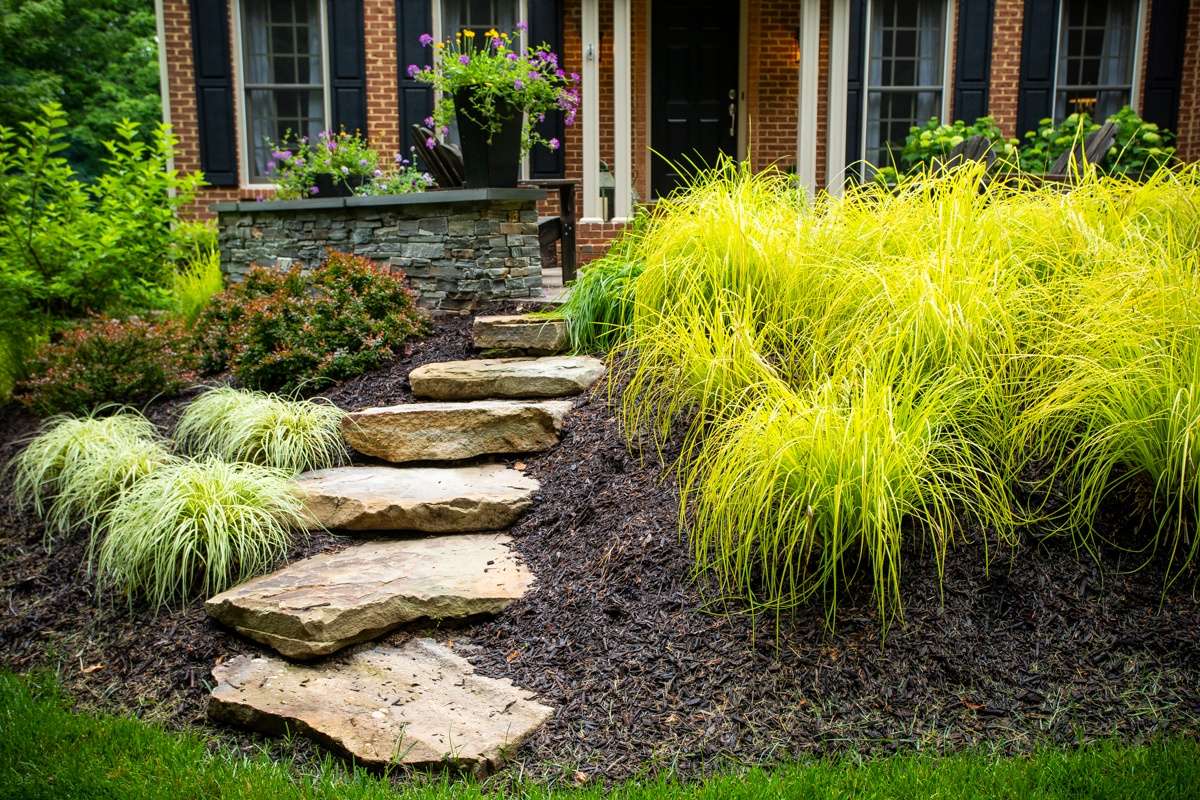

If You're Looking For a Sign, This is It.
Seriously, that lawn isn't getting any better on it's own. Mrs. Jones just called the HOA on you